名古屋国際学園 学校案内 Nagoya International School Nagoya International School Inquire Inspire Impact
学習とは単に答えを見つけるだけでなく、 その答えを突き詰めること。

私達にとって教室とは、生徒が自らをとりまく世界について常に疑問を持ち、 思索を巡らせる場、単に答えを見つけるだけでなく、更にその答えを突き詰める場所です。
子どもは、疑問を持ち、追求することで自らが生きる世界への理解を深め、 社会との繋がりを意識し、自己の存在や責任を認識します。
真の国際人としてのアイデンティティの形成に不可欠な自己意識、 他者意識の発達のためには、実社会との関わりは欠かせません。 こうしてNISの生徒は自己と世界への理解を深め、 学習者及び思索者として自信を持って、将来の夢に向けた一歩を踏み出すのです。
Learning is not about answering the questions

At NIS, we conceive of classrooms in which students are taught to habitually question and puzzle over the world around them; classrooms which encourage students not merely to ‘answer the questions’ but rather to ‘question the answers’. We do this because we know that it is only by truly questioning their world that young people can come to fully understand their world. We know that it is only through developing this understanding that students can meaningfully connect to and contribute to the communities around them.
It’s about questioning the answers
We understand that it is these real-world interactions that create a sense of engagement’ necessary for students to develop an awareness of ‘self’ and ‘other’ so critical to the formation of a child’s personal identity as a citizen of the world. In this way, NIS students come to understand themselves and their world, develop confidence as learners and thinkers, and embrace a personal dream for their future beyond our community.
tagline - Inquire, Inspire, Impact - embodies our mission and guides every facet of our school community. Created by the community for the community, we aim to make our mission the reality for all students, regardless of their age, nationality, academic need or length of enrollment.

Our
Our
We inspire
our students to
Inquire, Inspire, Impact は本校の使命を具体化し、 本校のあらゆる面においての方向性を示しています。 私達は、年齢、国籍、目標、在籍期間に関わらず、 全ての生徒にこの使命が実現するよう務めます。
Mission:
and empower
think creatively and critically, pursue lifelong learning, and contribute positively to the global community. In other words, we inquire, inspire and impact!
Our curricular program represents our contract with parents -- this is the learning to which your child will be entitled upon joining NIS. The school has chosen to frame our curriculum through the three programs of the International Baccalaureate (IB) which represent the world standard for international education. The IB program aligns with our mission as it nurtures students to be passionate about their learning and committed to supporting their communities, regardless of their chosen profession or path.
PYP: The Primary Years Programme

初等教育プログラム
Preschool-Grade 5
The IB Primary Years Program (PYP) offers a comprehensive approach to teaching and learning. In the PYP a balance is sought between the acquisition of essential knowledge and skills, the development of conceptual understanding, the demonstration of positive attitudes, and the importance of taking responsible action.

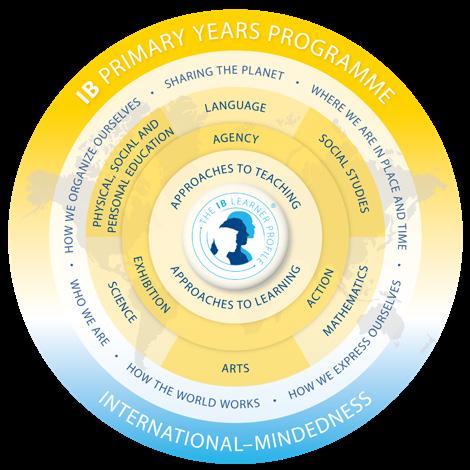
3〜12歳の生徒を対象としたPYPプログラムは、基本的な知識とスキル、 概念理解、前向きな姿勢、責任ある行動などをバランスよく取得、 発達させることを目指した、普遍的かつ総合的な教育プログラムです。
MYP: The Middle Years Programme
中等教育プログラム Grades 6-10
The MYP provides a framework of learning that encourages students to become creative, critical and reflective thinkers. The MYP emphasizes intellectual challenge, encouraging students to make connections between their studies in traditional subjects and the real world. It builds upon the knowledge, skills and attitudes developed in the PYP and prepares students to meet the academic challenges of the Diploma Programme (DP). 6〜10年生(11〜16歳)を対象としたMYPプログラムでは、創造的、 批判的かつ省察的な考え方の出来る生徒の育成を目指します。PYPプログラムで 身につけた知識、スキル、姿勢を基盤とし、教科と実社会とを関連づけながら 研鑽を積みつつ、ディプロマ・プログラムに備えます。
DP: The Diploma Programme
ディプロマプログラム
Grades 11-12
The IB Diploma Programme (IBDP) is an academically challenging and balanced program of education that prepares students for success at university and in life beyond. The DP curriculum is a comprehensive, demanding academic experience that provides a thorough education in a broad range of subjects based on six subject groups surrounding three core requirements: TOK (Theory of Knowledge), EE (Extended Essay) and CAS (Creativity, Action & Service).
IBディプロマ・プログラムは、大学レベルの学習、更にはその後の人生に 必要な力を養う高度でバランスの取れたプログラムです。TOK(知の理論)、 EE(課題論文)、CAS(創造性、活動、奉仕)の3つの中心的要素と6つの 教科群で構成され、きめ細かく幅広い学習経験を提供します。

NISのカリキュラムは、世界標準の国際教育である、 国際バカロレア(IB)の3つのプログラムを中心に構成されています。 私達にとってカリキュラムは保護者との約束であり、 私達は使命の遂行に向け真剣に取り組みます。 各々の目標に向かって学業に真剣に取り組む姿勢を養い、 コミュニティに貢献する生徒を育成するIBプログラムは、 私達の使命とまさに合致するのです。
Our Program:
TheEarlyLearningCenter (ELC)



Ages 3-5
Preschool + Kindergarten
NurturingCuriosity
Students in preschool and kindergarten join the NIS community at an important stage of personal development. It is a time when students are becoming more independent and nurturing their natural enthusiasm and curiosity for learning.

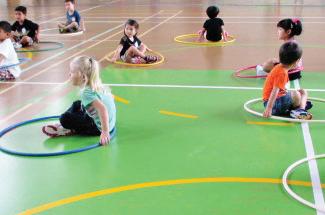



To cultivate the beliefs and values of the IB PYP, the NIS Early Learning Center (ELC) has adopted the Reggio Emilia approach to learning that encourages collaboration with teachers and peers to “co-construct” their learning through the experiences of touching, moving, listening, seeing, and hearing. Through this “co-constructive” process, teachers are able to support the development of cognitive skills, build self-esteem, and help set students on a path towards becoming life-long learners.
Language skills are taught through a holistic and integrated approach, with language concepts taught throughout the day in a variety of contexts and integrated within our “co-constructive” approach to learning.
A literacy-rich environment encourages students to explore and interact with materials that support their development of reading, writing and speaking both independently and in small groups. Teachers interact with students individually and in small/whole group sessions to teach targeted language skills in context to what is being studied, which develops vocabulary and language usage in a way

that is more meaningful and relevant to each student.
Within the inquiry-based nature of the PYP, students examine the world and their role within it through the six transdisciplinary themes called “Units of Inquiry”. Through these connected learning experiences, students are taught to ponder, make predictions and test their beliefs and assumptions.

ELC students explore with a variety of materials during both structured and non-structured periods of time. A range of inside and outside spaces are designed to inspire imaginative play and creative expression.
プログラムは、五感や自らの体験を通して教師や仲間とともに 学習体験を積み重ねるレッジョ・エミリア方式を取り入れ、国際 バカロレア初等教育プログラム(IBPYP)の信念や価値観を養 います。こうした学習体験により認知能力の発達、自尊心の確 立が促され、生涯を通して学習を追求する人間となるための礎 が培われるのです。

教室には、読む、書く、話す力を伸ばすのに最適な豊かな学 習環境が整っています。既習事項や個々の体験と関連性を持た せながら、語彙や用法がより意味をなすよう、内容や状況に応 じて、個別、少人数のグループ、あるいはクラス全体で、教師 は生徒と向き合います。
PYPは探究を通した学習をベースとしています。UOI (探究 の単元)と呼ばれる、教科の枠を超えた6つのテーマを通し、生 徒は考え、予測し、検証することを学びます。 いつでもどこでも、生徒が興味を抱いた時が探究の始まり です。ELCには、教室の内外に、生徒が想像力、表現力を駆使 して遊びや創作に取り組める環境が整っています。

プリスクール、キンダーガーテンの生徒が学校生活をスタート させるのは、自立心が芽生え、好奇心、探究心が育つ、子ども の発達段階において重要な時期です。NISのELC(幼児教育)
The Early Learning Center (ELC) Primary School • PYP 幼児教育部(プリスクール、キンダーガーテン) 3〜5歳児 Ages 3-5



Grades
Elementary School
1-5
EngagingYoung Minds
NIS Elementary students acquire conceptual understanding by skillfully manipulating, interpreting and evaluating knowledge. Once successful in understanding their world at a conceptual level, students can begin to develop the attitudes of social responsibility necessary to make contributions and have an impact on the world we share.





The inquiry-based nature of the PYP encourages students to take responsibility for their own learning. They are taught to seek-out information and opportunities to collaborate with others, elaborate on their ideas, and delve deeper into problems. Students learn to create and evaluate solutions while considering their common humanity and recognizing their shared guardianship of the planet.
Students follow an integrated program of study that includes Language (English & Japanese), Mathematics, Science, Individuals & Societies (Social Studies), Personal, Social and Physical Education, Visual & Performing Arts, and Information & Communication Technologies.

In addition, six transdisciplinary themes provide the opportunity to incorporate both local and global issues and enable students to “step out” beyond the confines of subject areas and see the world with a wider perspective. Eight key ‘concepts’ (form, function, causation, change, connection, perspective, responsibility and reflection) as well as related concepts are embedded into these themes.
Together, the subject disciplines, transdisciplinary themes and key and related concepts are blended into “Units of Inquiry”, a series of substantial learning experiences
which are connected by a central idea and usually last for several weeks. The excitement of a unit of inquiry will take learning in directions that are student-centered and student-led, and which has the capacity to create relevance, meaning and connection for learners in their understanding of their world.
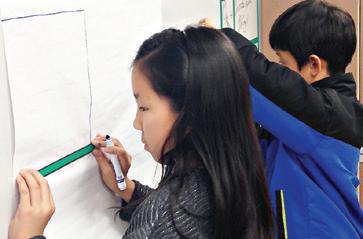

The classroom curriculum is supported by a range of after school activities which provide challenge and enrichment for students beyond the school day. Student action and voice is welcomed through participation in student council or other student-initiated theme days and events.

Well-kept classrooms with a generous adult to student ratio feature student work and visual prompts to provide a nurturing and inviting space. Large tables encourage students to ponder and collaborate in groups. And a spacious, newly renovated purpose-built playground gives students a chance to play outside under the cherry trees in a challenging yet safe environment.
Elementary School
探究を中心としたPYPプログラムでは、生徒が主体的に学習 に取り組むことが求められます。情報収集、恊力すること、自分 の考えを述べること、問題を深く掘り下げることを身につけな がら、共通の人間性、地球で共存するにあたっての責任を認識 し、問題解決にあたるようになります。
小学部では、言語(英語、日本語)、算数、理科、社会、保健 体育、芸術(美術、音楽、演劇)、コンピューターなどを統合的 に学習します。
小学部のカリキュラムの中核を為すのは、教科の枠にとらわれ ることなく、身の周りあるいは世界中の様々な事象を多角的に捉 える機会を作り出す6つの学究的テーマを掲げたUOI(Unit of Inquiry/探究の単元)です。それぞれのテーマには主題 と8つの 重要概念(形式、機能、要因、変化、関連性、観点、責任、振り 返り)、それにまつわる幾多の概念が結びついており、それぞれ 数週間をかけ、1年間で6つのUOIを学習します。生徒達は複 数の教科や文脈を横断的に結びつけながら主体的に探究を進 め、世界への理解を深めます。このような生徒中心の教育は、意 味と関連性のあるより深い理解をもたらします。
小学部では、 生徒は知識を精査、応用しながら身の周りの世 界についての概念的理解を深め、やがては我々が共存する世界 における自らの社会的責任を自覚するようになります。
授業外では、生徒会活動や、生徒が企画、主導して行う行事 の他、様々なアフター・スクール・アクティビティもあります。 各クラスは、教師、アシスタントと生徒の比率に配慮して編 成されています。生徒の作品や様々な視覚教材に彩られた、カ ラフルで温かみのある教室には、じっくり考えるのにも、共同作 業にも最適な大きめの机が配置されています。様々な遊具を備 え、緑豊かで広々としたプレイグラウンドは、安全で楽しい遊び 場となっています。
Primary School • PYP 小学部 1〜5年生 Grades 1-5
Middle School



Grades 6-8
Guiding the Transition
The ages between 11 and 14 are a time of profound transition. Students at this age seek to move away from the nurturing environment of the self-contained elementary classroom, while still needing support and guidance from adults. As a result, the middle school years require a careful balance between subject area learning and the development of personal and social identities.

The focus of the middle years at NIS is on the growth of the whole child, encompassing not only the academic needs of the students, but also their social, emotional and physical development. We want middle school students to stretch their limits, but we also want them to feel safe and supported at the same time. Small class sizes enable teachers to keep a close eye on the students’ academic, social and personal development.
Middle school students study a wide range of subjects in a well-balanced course of study taught using approaches set out by the IB Middle Years Program (MYP). In all subjects, the courses are designed to go beyond the acquisition of knowledge and skills, as learning is linked through key concepts that bring real-world perspectives to the classroom. In that sense, the transition from the PYP is very smooth in
that students continue to connect content, concepts and themes through global contexts in units of inquiry. At the same time, the increasing rigor of the curriculum prepares students well for the challenges of High School, and the IB diploma program in Grades 11-12.



The teachers work closely together so they are able to share academic and social development insights about the students. Teachers also encourage close contact with parents to gain further insight into their growth and concerns as they mature into young adults.


To balance their academic studies, middle school students are encouraged to participate in a variety of sports, arts and service activities, including team sports, student government, National Junior Honor Society, drama or musical productions.



時期であり、教科学習だけでなく、自己及び社会的アイデンテ ィティの発達にも配慮が求められます。きめ細かい指導を可能 にする少人数クラスで、生徒がのびのびと安心して各自の可能 性に挑戦できる環境を提供し、学力、社会性、人格形成、心身 などあらゆる面での全人的な成長を目指します。
MYPプログラムをもとにしたバランスのよいプログラムで構 成されるカリキュラムでは、全ての教科において、知識やスキ ルの習得に留まらず、実社会と密接に結びついた基本概念を学 習します。高等部、そして11、12年生からのディプロマ・プロ グラムに備えるため、徐々に学習の難易度も上昇します。
教師同士が連携し、家庭との連絡を密にしながら、学習面、生 活面の両面において各生徒の状況を充分に把握し、青年期へ
中等部では、しっかりとした学力と自信、社会の一員として の自覚と責任を身につけることに重点を置いています。11歳か ら14歳は、大人の庇護のもとにありながらも、これまで守り慈 しまれてきた小学部の環境から巣立とうとする、大きな変化の
Helping middle school students feel empowered while at the same time connected to their community is very much at the heart of what we provide at NIS.
の成長をサポートします。 クラブ活動、生徒会活動、ジュニア・ナショナル・オナー・ソ サエティ、演劇、ミュージカルなどの様々な活動に参加し、充実 した学校生活を送ることが出来ます。 Middle School Secondary School • MYP 中等部 6〜8年生 Grades 6-8 *NIS has been granted “candidacy status” as part of the IB MYP Authorization Process. NISは国際バカロレア中等教育プログラムの認定候補校です。
HighSchool


Grades 9-12

Passage to The Future
Our high school program provides students with all the options they need, whether seeking admission to universities around the world or pursuing other pathways in search of their dreams



A range of well-rounded and balanced high school courses that reach beyond core knowledge and skills is offered in the NIS high school. Within this environment, students develop conceptual understandings that allow them to analyze what they learn, evaluate facts, form deeper perspectives and become creators of new ideas. Students are encouraged to develop the skills to use what they learn to enable them to apply what they know to various situations both in and out of school.


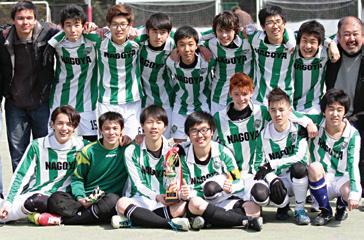
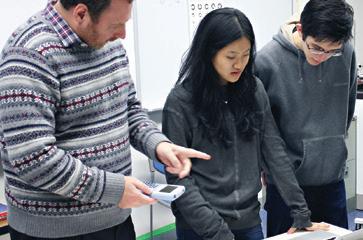

At NIS, we believe that each student is an individual with individual needs. Small class sizes allow teachers to closely monitor the academic, social and personal development of each student. To help ensure students have the opportunity to succeed in their educational and developmental paths, the Student Services Team work to provide support and guidance in a variety of ways. From college guidance and language development concerns to support for medical or emotional needs, this Student Services Team supports each student in an individualized way.
This nurturing approach to learning and development for the high school years prepares students to be successful in college or other career paths, and helps them to know how to create their own pathways towards their dreams while contributing positively to their communities.
Two Phases of the NIS High School Program
There are two phases to a student’s high school studies at NIS. The first two years of high school (grades 9 & 10) is the last phase of the IB Middle Years Programme (MYP). For the last two years of their high school (grades 11 & 12), students can choose to pursue either the NIS diploma as a single qualification, or to also attempt to obtain the additional IB Diploma (IBDP) through the International Baccalaureate Organization. Regardless of the end goal, IBDP candidate students and NIS diploma-only candidate students attend the same courses, while the requirements and expectations differ according to the path chosen by the student.
In addition to a rigorous academic challenge, all students are expected to complete activities related to creativity, action and service (CAS) and are encouraged to participate in sports teams, student government, or other school groups or activities.
知識、スキルの習得に留まらず、学習したことを教室内外の様
々な状況に応用し、分析、精査しながら、創造的に、より深い観 点からものごとを捉えることを目指します。
学力、社会性、人格形成においてそれぞれ異なる発達段階
にあり、それぞれ異なるニーズを持つ生徒達を、教師と生徒支 援チームが連携し、進路指導から言語発達、心身の健康まで、 個別にサポートします。 こうしてあたたかく見守られながら、高等部の生徒達は将来 を見据え、コミュニティに積極的に貢献しつつ、夢に向かって歩 み始めるのです。

高等部では、大学進学をはじめとし、生徒が各自の夢の実現 に近づけるよう、出来る限りの環境を整えます。 包括的でバランスのとれた高等部のプログラムでは、主要な
高等部の2段階 高等部は、MYPの最後の2年間である9、10年生と、ディプ ロマ・プログラムが履修可能な11、12年生の2段階に分かれま す。11、12年生では、NISの卒業証書のみを取得するコース又 は、NIS卒業証書及びIBディプロマの両方を取得するコースを 選択することが出来ます。いずれのコースを選択しても履修す る科目は同一ですが、課題や要件がコースによって異なります。 高等部では、更に学習の難易度が上昇するのに加え、全生 徒が「創造性、活動、奉仕(CAS)」に関する活動に従事するほ か、クラブ活動、生徒会活動を始めとする様々な課外活動への 積極的な参加を推奨しています。 High School Secondary School • MYP/DP 高等部 9〜12年生 Grades 9-12
At NIS, we believe that each and every student is an individual with individual needs, and at various times in their education a student may benefit from additional help or guidance.

To ensure students have the opportunity to succeed, we have developed a team of staff who work across the school divisions to provide support in a number of ways including help with any learning challenges. Support can take a variety of forms: it could be a dedicated adult giving 1:1 direct support in the classroom for some or all of their timetable, or might be as simple as a recommendation for some after school tutoring.
While inclusive, personalized learning is our goal, due to the nature of the local community and the lack of availability of staff within our school community who can provide certain, specific areas of support in English, unfortunately we are not able to support all students with all needs. Admissions into NIS requires parents to be honest and forthcoming with any and all information regarding the physical, emotional, social and academic development of their child.
Language is a medium of inquiry and central to each student’s intellectual, social and emotional development. Language is seen as involving learning language itself, learning about language, and learning through language. It is the major connecting element across the curriculum.


In a school environment where different languages could be spoken, we believe that the use of a common language is essential to ensure inclusion for all and to enhance understanding of the many different cultures represented. Our common language is English.
The curriculum at NIS is delivered in English, and mechanisms are in place to support students who need additional support to improve English language proficiency and to better access the curriculum to achieve our mission.
While English is the primary language of instruction at NIS, our community embraces the many varied linguistic backgrounds of all our students. NIS is committed to the development of an additional language for our students as we strongly believe that this aids in the development of intercultural awareness and open-mindedness. For NIS students in grades K-10, this additional language is Japanese, and is an important part of our curriculum. Japanese language is required for all students from ELC K through high school. Other languages are optional from grade 11 and 12 as part of the IBDP program for an additional cost through on online provider.
ます。 授業で使用する言語は英語ですが、私達は生徒達 の多様な言語的背景も尊重します。また、真の国際 理解と寛容性を推進するため、母国語以外の言語
生徒はひとりひとり異なるニーズを持っており、各自 のニーズに応じた学習支援やアドバイスが必要な場 合があります。学習支援チームは、学年や課程の枠 を超え、生徒の学習成果の向上のために様々な形で の支援を提供します。通常の授業内での個別指導、 専任スタッフによる終日または部分的な個別支援、 放課後の個別指導の斡旋など、支援の形態は多岐に わたります。 ただし、この地域及び本校コミュニティ内において支 援を提供出来る分野は限られており、誠に残念ながら 支援が必要な全ての生徒に学習支援を提供すること が出来ません。 また、入学に際し保護者の皆様には、お子様の心身、 社会性、学習面での発達、問題点等について、あり のままに漏れなくお知らせ下さいますようお願い申し 上げます。 探究の媒体かつ、生徒の知的、社会的、精神的発達 の中心となるのは言語です。言語を習得し、言語に ついて学び、言語を使って学ぶ、と、言語はあらゆ
の習得とともに、自国の文化への理解と母国語の確 立の必要性を認識しています。日本語はキンダーガ ーテンから10年生までは必須科目で、IBディプロ マ・プログラムを履修する11、12年生では選択制 で他の言語の履修が可能です。 Personalized Learning Languages at NIS ひとりひとりに合った指導 言語の重要性
る局面に顕在し、また、カリキュラムを構成するのも 言語です。 複数の言語、文化が存在する学校環境において は、互いを理解し合い、コミュニティがひとつになる ための共通言語が不可欠です。私達の共通言語は 英語です。 NISのカリキュラムは英語で実施されています。 必要に応じ、英語力をサポートするシステムもあり
Japanese Language
NIS promotes dual language acquisition as one way to learn about and enhance interaction with others. Learning Japanese is both a window to better appreciate the Japanese culture and an important tool for students to contribute meaningfully to our greater community.
NIS supports Japanese language development to meet the individual needs of students by providing a differentiated course structure that varies depending on age, grade, and current Japanese level.
Primary Years Programme (ELC K -Grade 5)
ELC Kindergarten: The earliest age at which NIS students explore Japanese is from the ELC Kindergarten, and students are placed in the same class regardless of previous exposure to Japanese. This mixed group of levels enables students to share their language experience through play, and also to nurture a better understanding and appreciation of the Japanese culture.
Elementary School Grades 1-5 : Elementary school students are grouped into three levels within each grade. All three classes are based closely on PYP learning concepts to establish literacy skills for different purposes.
• JNL: Japanese as a Native Language;
• JFL 1: Japanese as a Foreign Language for students who have limited or no experience with Japanese;
• JFL 2: Japanese as a Foreign Language 2 for students who have successfully completed JFL1 or the equivalent
Middle Years Programme
(Grades 6-10)
Japanese courses in grades 6-10 are divided into two broad levels – Language A and B.

• Language A This course is aimed at students with a native or near native competency in Japanese language, and students study both modern and classic Japanese literature.
• Language B1, B2, B3 and B4 are language acquisition courses of varying levels from beginner through advanced capability.
Diploma Programme
(Grades 11-12)
The appropriate IBDP Japanese language course is determined after consultation with teachers, the student, parents and the IB coordinator. All courses encourage students to expand their awareness of the world and foster respect for cultural diversity.
• Language A: Japanese Language and Literature (HL or SL). This course is aimed at students with a native competency in Japanese, and focuses on language, mass communication and literature. HL students read six novels over four semesters, which in the past have included works by Nakajima Atsushi, Mori Ogai, Abe Kobo, Yoshimoto Banana, Natsume Soseki, Takamura Kotaro, and Saneatsu Mushanokōji.
• Language Acquisition: Japanese Language B (HL or SL) & Japanese ab initio. The Language B course is designed for students who have some experience learning Japanese and Japanese ab initio is a language acquisition course for students with little or no experience with the Japanese language.
日本語の学習は、日本の文化や価値観への 理解を深め、コミュニケーション力を高め、 グローバルに社会に貢献するにあたっての 起点であり手段でもあります。学年や 習得状況により様々なレベルのクラスがあります。
初等教育課程 (キンダーガーテン〜5年生) ◎ELCキンダーガーテン/日本語の履修はキンダー ガーテンから始まります。習得状況に関わらず、全て の生徒が同じクラスで学習します。楽しみながら日本 の文化について学びます。 ◎小学部(1〜5年生)/学年ごとに3つのレベルの クラスがあり、それぞれがレベルに応じたPYPの学 習目標に沿って学習します。
・JN1 日本語を母国語とする生徒 ・JFL1 日本語初心者 ・JFL2 JFL1を修了した生徒及び同等の レベルの生徒
IBDP Japanese の特長
るように学習します。 ディプロマ・プログラムでは、考える力を重 視しています。日本語Aを修了した生徒は、大 学での学習はもちろんのこと、社会人として仕 事上でのプレゼンテーション等でさえも物怖じ する事なく、様々な分野で活躍できる力を身に つけています。
ら6作品を題材にします。
◎ 日本語習得/「日本語B」(HLまたはSL)と日本 語 ab initio に分かれます。日本語Bは、ある程度は 日本語学習の経験がある生徒を対象とし、日本語ab initio は初心者のためのコースです。
ネイティブレベル又はほぼネイティブ に近いレベルの生徒を対象としており、近現代文学と 古文を学習します。 ◎ 日本語B1、B2、B3、B4/ 初心者から上級ま でのレベルに応じた、日本語習得を目的としたコー
ます。コースの選択は、生徒、保護者と、教師、IBコー ディネーターの面談の上で決定します。 ◎ 日本語A/「日本語及び日本文学」のハイレベル (HL)とスタンダードレベル(SL)に分かれます。ネ イティブレベルの生徒を対象に、言語としての日本 語、マスメディア、文学を中心に学習します。HLで は、2年間で中島敦、森鴎外、安部公房、吉本ばなな、 夏目漱石、高村光太郎、武者小路実篤などの作品か
中等教育課程 (6〜10年生) 6〜10年生の日本語には、A、Bの2つのコースが あります。 ◎ 日本語A/
スです。 ディプロマ・プログラム(DP) (11〜12年生) いずれのコースも、世界への理解を深め、多様な文化 や価値観を尊重する姿勢を養うことを目的としてい
日本語 ディプロマ・プログラムの日本語Aでは、題材 とする日本文学を、長編小説であっても始めか ら終わりまでを読破し、全体を通して主題を掴 みます。更にその過程で、あらゆる角度から文 章を分析、洞察しながら、激しく意見交換を行 い、読解力、批判的思考力を培っていきます。 論説文を書く際には、ただの感想文で終わら せるのではなく、根拠を示しつつ論理的に自分 の主張を説明することを学びます。 文章力、読解力だけでなく、話すことにも力 を入れています。授業では、スピーチ、劇、デ ィベートなどを行い、的確な言葉を流暢に話せ
NIS graduates earn an NIS diploma (U.S. recognized high school diploma), and in addition, may obtain the International Baccalaureate (IB) diploma. A majority of graduates continue their education in colleges or universities in the U.S., U.K. or Canada, and some at a growing number of universities in Japan that offer programs based in English.
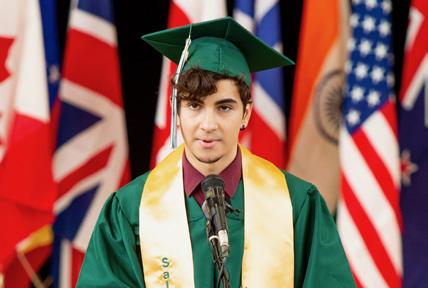


USA
• California Polytechnic State University

• Central Oregon Community College
• Central Washington University
• Clarkson University
• College of Charleston
• Culinary Institute of America
• Emmanuel College
• Fordham University
• George Mason University
• Massachusetts College of Pharmacy and Health Sciences
• Michigan State University
• Northeastern University
• Oberlin College
• Pace University
• Penn State Altoona
• Pennsylvania State University
• Purdue University
• Rose-Hulman Institute of Technology
• Seattle University
• State University of New York (Binghamton)
• State University of New York (Oneonta)
• Texas A&M University
• University of California Berkeley (2)
• University of California Davis (2)
• University of California Irvine
• University of California San Diego (2)
• University of California Santa Barbara
• University of California Santa Cruz
• University of Colorado
• University of Florida
• University of Massachusetts
• University of Michigan (2)
• University of Minnesota
• University of North Dakota

• University of North Texas
• University of the Pacific
• University of Pennsylvania
• University of Pittsburgh
• University of San Francisco (2)
• University of Southern California
• University of Texas
• University of Utah (2)
• University of Washington (5)
• Washington State University (3)
• Western Washington University
• Worcester Polytechnic Institute
Canada
• Concordia University
• Dalhousie University
• Emily Carr University of Art and Design
• King’s University College at Western University
• McGill University
• McMaster University
• Mount Allison University
• Ontario College of Art and Design Univ.
• Queen’s University
• University of British Columbia (4)
• University of Montreal
• University of Saskatchewan
• University of Toronto (3)
• York University
UK
• City London College
• King’s College London (7)
• London School of Economics (2)
• Queen Mary University of London (3)
• Royal Holloway, University of London
• University College London
• University of Bath
• University of Birmingham
• University of Cambridge
• University of Dundee
• University of Durham
• University of Edinburgh (3)
• University of Exeter
• University of Leeds
• University of London College
• University of Manchester (2)
• University of Sheffield
• University of Southampton
• University of St. Andrews
• University of Warwick Japan
• Chuo University
• Hosei University (3)
• Keio University (2)
• Nagoya University
• Osaka University
• Ritsumeikan (3)
• Ritsumeikan Asia Pacific University
• Sophia University (5)
• Waseda University (4)
Other
• Monash University (Australia)
• University of Adelaide (Australia)
• University of Queensland (Australia)
• University of Western Australia (Australia)
• University of Otago (New Zealand)
• Institut Universitaire Technologique (France)
• École Nationale Ingénieurs Tarbes (France)
• Tilburg University (Netherlands)
• University of Amsterdam (Netherlands)
• University of Leiden (Netherlands)
Out Into the World Universities Accepting Graduates 大学合格実績 (2019 +2020) 卒業時に授与されるNISの卒業証書は、アメリカの高 校卒業資格と同等です。更に、IBディプロマを取得す るチャンスもあります。卒業生の大多数はアメリカ、イ ギリス、カナダなど英語圏の大学に進学します。近年 では、英語のプログラムを持つ日本の大学への進学も 増加しつつあります。 さらに世界へ
Set on a park-like campus of approximately 7.5 acres in the northeastern tip of Nagoya, NIS consists of five modern buildings connected by terraces, gardens, and covered walkways.





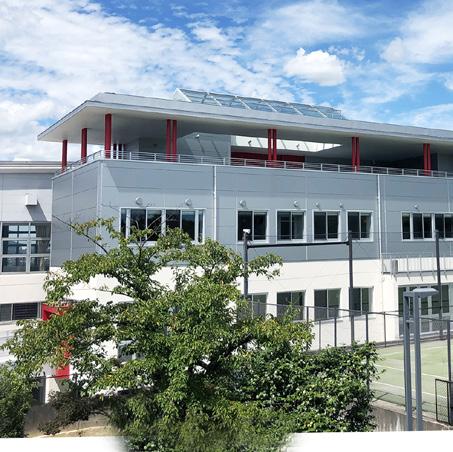





Bus Service
NIS students may use one of several bus routes provided by the Nagoya International School Bus Association. First priority is given to students who sign up for full service (morning and afternoon seats).

The “Kozoji shuttle bus” (Bus #1) runs between NIS and Kozoji station (JR Chuo Line), leaving the station once in the morning and returning three times in the afternoon. There are also two additional late afternoon shuttle routes to Issha station as well. These after-school routes are intended for older students who participate in after-school activities and who are comfortable using the public train and subway system.
The other buses start from the middle of the city, traveling from downtown, Chikusa station, Yagoto, and Higashiyama through other neighborhoods in Chikusa-ku and Meito-ku. These buses have one morning pick-up time and depart from NIS for the return visit after classes finish each day.
(Bus maps available upon request)
参加する生徒はこのバスが便利です。
その他のバスは、千種、八事、東山、名東区などを 通過しながら名古屋市内を巡回し、運行は午前、午 後の一回ずつです。

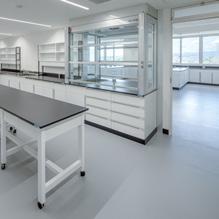
NIS Campus キャンパス 約3万平米のキャンパスには、近年改修された5棟 の校舎が、園庭や渡り廊下で結ばれています。 スクールバス 名古屋国際学園バス交友会が運営するスクールバス には複数のルートがあります。各ルートのバスには定 員があり、午前、午後共に利用登録をした生徒が優 先的に乗車することが出来ます。片道だけの利用登 録は出来ません。 #1バスはJR中央線高蔵寺駅とNISを往復するシャト ルバスです。午前に高蔵寺駅からNISに向かう1便 と、午後にはNISから高蔵寺駅への3便があります。 また、午後に2便、NISから地下鉄一社駅に向かう シャトルバスがあります。放課後のクラブ活動などに
バスの運行ルート、時刻表についてはお問い合わせ 下さい。
AICHI NIS Toyota
Tokyo Kyoto Nagoya
JAPAN Nagoya
Wing Building
Raymond Building
ELC
Annex
Fieldhouse
Dixon Field
East Building
Upper Parking
Bus Parking
East Parking Plaza
Playground Barton Garden
Admissions
Admission to NIS is based on a number of factors. Applicants must have an interest in our mission and philosophy, a demonstrated ability to succeed within our curriculum, and an appropriate level of English language proficiency. The applicant should be sufficiently mature, and for continued enrollment at NIS, satisfactory academic progress must be maintained.
Application Deadlines
NIS accepts applications at all times of the year, and students can enroll at any time, depending on availability, through grade 11. Applications are not accepted for students intending to enroll in grade 12. To complete the IB Diploma Programme, high school students must enroll no later than the beginning of grade 11 and must complete their last two full years at NIS.
Application Documents
All Applicants:
• NIS Application Form (online)
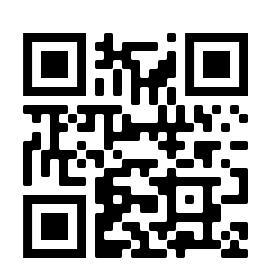
• Grades/Transcripts/Progress Reports *
• Photographs (applicant & family photo)
• Passport or Juminhyo Photocopy
• Application Fee (¥20,000)
Elementary & Secondary Applicants:
• NIS Confidential Recommendation Form
ELC Preschool & Kindergarten Applicants:
• NIS Early Childhood Recommendation
* Grades / Report Cards must cover the past two academic years and must be in English
* No documents will be returned
Admissions Interview
If all application materials have been submitted and the Application Fee has been paid, an applicant/family interview will be scheduled if the applicant is deemed to be a qualified candidate.
Admissions Decision
After the admissions process has been completed (including testing), the school will determine admissions eligibility and grade placement. Admission will not be granted to students who demonstrate difficulty in adequately accesing the NIS curriculum in their projected grade level, even with additional support. Such students will be asked to withdraw their application, with no refund of the application fee.
English Language Testing
Applicants without an appropriate level of English language proficiency will be required to arrange testing prior to the interview. Applicants must apply before testing can be arranged. In some cases, families may be asked to arrange for testing prior to applying.
EAL testing is usually required onsite at NIS. The type of testing required depends on a variety of factors; it is important to have all application materials completed in full and submitted as soon as possible.
EAL Program
To accommodate otherwise qualified applicants who may not have the appropriate level of English language proficiency, the NIS EAL Program (English as an Additional Language) provides support. There is no EAL support for students entering grade 11.
Grade Placement
Students are typically placed in the grade with their age level peers. The placement is reviewed after enrollment to confirm the appropriateness academically, socially, and emotionally.
Provisional Acceptance
If space is available, and if certain conditions are met, Provisional Acceptance (pending an interview) may be considered for applicants applying from outside Japan, waiving the need for an interview prior to granting official admission.
Progress Review
Satisfactory progress must be maintained in order to continue to be enrolled at NIS. Admitted students are evaluated throughout the year, and, if satisfactory progress is not being maintained, the school may reconsider the initial placement and/or a student may be retained and not advance to the next grade the following school year.
The NIS Summer Program provides students with a dynamic environment that helps them learn while having fun. The program has two sessions at the end of July/early August that incorporate activities challenging students in five main areas - Creative, Cognitive, Cultural, Collaborative, and Cardiovascular. Activities vary weekly, but include arts/crafts, team games, IT, and science experiments.
Participants must submit a completed application form. Parents can apply for one or both sessions.
Tuition & Fees
NIS tuition and fees are set annually in March for the following school year, approved by the Board of Directors and are published on the school website. Set on an annual basis, tuition is charged annually for students starting at the beginning of the school year. Students registering after the school year begins are charged tuition quarterly regardless of the start date within the quarter. All fees are charged in full, regardless of the enrollment start date or intended length of stay.
It is expected that all NIS parents have read and fully understand the invoicing and payment procedures and policies which are available on the school website.
Scholarships
Under certain circumstances, scholarships are available for families who qualify. Contact the Admissions Office for more information and an application.
Enrollment Eligibility Admission is open to students age 4-12 (entering Preschool 4 through grade 5/6), who fall under one of the three admissions categories below:
• (1) Students who are currently studying full-time in an international school (or school outside of Japan) which uses an English-based school curriculum AND who are not enrolled in the Japanese school system;
• (2) Japanese returnee students who have returned within the last two years and can submit grade reports or transcripts of former school(s) attended. They must have previously studied in an English-language curriculum while outside of Japan;
• (3) Students who are non-Japanese or multi-cultural (i.e. one or both parents have a non-Japanese passport and a native language that is not Japanese) and who have sufficient English language skills to participate.
NIS Online Application *
NISサマープログラムは、子ども達がいきいきと、楽しみな が ら学べる環境を提供します。7月下旬から8月初旬にわたり、 1週間を1セッションとしたプログラムを2セッション開催しま
す。Creative(創造性)、Cognitive(知覚)、Collaborative(協 力)、Cultural(文化)、Cardiovascular(運動)の5つの分野に 重点を置き、美術、クラフト、チームスポーツ、コンピューター、 料理、科学などの様々な活動に参加できます。

参加希望者は参加申込書をご提出ください。1セッションのみで も2セッション続けてのご参加も可能です。
● 参加資格
参加対象となるのは、4歳から12歳(プリスクール4歳児から小学 5/6年生)までの、以下のいずれかに該当する生徒です。

(1)現在、日本国内外を問わず英語を学習言語とする全日制の
学校(インターナショナルスクールまたは英語圏の現地校)に 在籍し、日常的に英語環境下にて学習中で、日本の学校に在籍

していない生徒
(2) 海外の英語を学習言語とする学校に在籍していた、帰国後
2年以内の帰国生(現地での成績表写しをご提出頂く場合が ございます。)
(3)生徒本人または両親のどちらかが外国籍で、生徒本人が日本
語以外の言語を日常言語とし、かつ、充分な英語力をもつ生徒
※NISサマープログラムは、英語力の取得または強化を目的とした ものではありません。お申込みにあたっては、参加資格をご確認下さい。 ※プログラムは英語で行います。全ての参加者に安全に楽しくご参加頂く ために必要な英語力をお持ちでないと判断した場合には、プログラム途中 でも参加をお取りやめいただく場合がございます。
● 英語力のテスト 入学審査の段階で、英語力が不足していると判断 した場合には、英語力のテストをさせて頂きます。テ ストの日時等は、入学お申込み後にご案内します。 基本的にテストは本校にて実施します。テストの内 容、種類は志願者によって異なる可能性がありますの で、出来るだけ早く全ての必要書類をご提出下さい 。
● EALプログラム 本校で充分に学習成果を上げる適性があると判 断されながら 、英語力が不足している生徒を対象 に、EAL (付加的言語としての英語)
授業料・納付金
授業料及び納付金については、理事会の審議 、承 認のもと決定します。翌学年度の授業料及び納付金 は、毎年3月にホームページにてお知らせします。授 業料は年単位での設定とさせていただきます。つき ましては、学年度開始時より入学する生徒には1年間 分を、学年度途中より入学する生徒には、入学日に 関わらず、4半 期(クオーター )ごとにご請求申し上 げます。なお、入学日や在学期間に関わらず、全ての 納付金は一括してご請求申し上げます。 ご請求及びお支払いの手順
分な学力と英語力、および勉学に対する興味と意欲 を有することが求められます。 また、志願者には年 齢相応の発達が見られることが要件です。 ● 申込み期限 入学申込みは一年を通して受け付けます。 該当の 学年に空きがあれば、随時入学審査のうえ入学が可 能です。ただし、12年生からの入学 、編入は受け付 けておりません 。また、IBディプロマ・プログラムを 履修するためには、11年生の学年度開始時までに入 学しなければなりません。 ● 必要書類 全ての志願者 ・入学願書(オンライン) ・成績表写し又は成績証明書 * ・写真(願書添付用志願者顔写真及び家族写真) ・パスポートまたは住民票の写し ・入学申込金(2万円) 小学部及び中・高等部志願者 ・推薦状(小・中・高等部用) ELC志願者 ・推薦状(ELC志願者用) * 過去2年間分の成績を英文にてご提出下さい。ご提出頂いた 書類はお返し致しません。 ● 入学面接 必要書類を全てご提出頂きましたら入学審査をさ せて頂きます。入学申込金をお支払い頂き、かつ入 学審査委員会が的確だと判断した志願者には 、面 接の日程をご案内します。面接は英語で行いますの で、必要な方は通訳同伴でお越し下さい。入学面接 は入学審査の最終段階であり、また入学可となった 場合は新しい学校生活への導入段階として大変重要 な機会となりますので 、志願者及びご両親にご出席 頂いております。 ● 入学可否の判定 テスト、面接を含む全ての入学審査が終了後 、入 学の可否、学年を判定致します。
NISサマープログラム 入学審査においては様々な要因を考慮のうえ入学 の可否を決定します。 志願者は、本校の使命および 理念を理解し、本校のプログラムで学習するのに充
私達は志願者が NIS において充分な学習成果を上 げることが出来るか否かを最も重視しています。本校 の学習支援をもってしても、それが困難だと思われる 場合には入学をお断りします。なお、お支払い頂いた 入学申込金の返金は致しませんのでご了承下さい。
プログラムがあ ります。11年生以上の生徒のためのEALプログラム はありません 。 ● 学年の決定 学年は、年齢基準に基づいて決定されます。また 入 学後に、学力、社会性、精神性の成熟度によって は、学年を再検討する場合があります。ただし、入 学時に志願者が学年レベルの英語力及び学力を有 しないと判断した場合 、特別な事情が無い限り学年 を繰り下げての入学は認めておりません。 ● 条件付き仮入学許可 日本国外からのお申込みで、該当の学年に空きが あり、かつ、一定の条件を満たしている場合には、特 例として入学面接前に、「条件付き仮入学許可」を差 し上げることが可能で す。後日入学面接にはお越し 頂きます。 ● 学習成果と留年
入学後は 、充分な成績を維持しなければなりませ ん 。年間を通し、満足な学習成果が得られていない と判断した場合は、学年を繰り下げるもしくは留年 などの措置をとることがあります。
し上げます。 ● 学習成果と留年 授業料のお支払いが困難なご家族を対象に、奨学 金が支給される場合があります。詳細や申請につい てはアドミッションオフィスにお問い合わせください。 NIS入学要項
、方針につきまして は、ホームページにて詳しくご説明させていただい ております。保護者の皆様におかれましては、これら をご一読のうえ、ご理解いただきますようお願い申

2686 Minamihara, Nakashidami, Moriyama-ku, Nagoya, Japan 463-0002 TEL: 052-736-2025 FAX: 052-736-3883 WEB: www.nis.ac.jp EMAIL: admissions@nis.ac.jp 学校法人名古屋国際学園 名古屋市守山区中志段味南原2686 〒463-0002 NIS is an International Baccalaureate Organization (IBO) World School and fully accredited by the Western Association of Schools and Colleges of the U.S. (WASC) and the Council of International Schools (CIS) 名古屋インターナショナルスクール Nagoya International School INTERNATIONALSCHOOLS



















































































